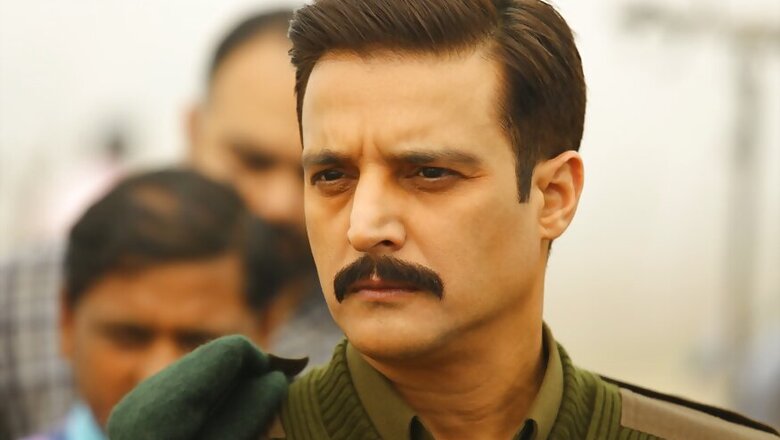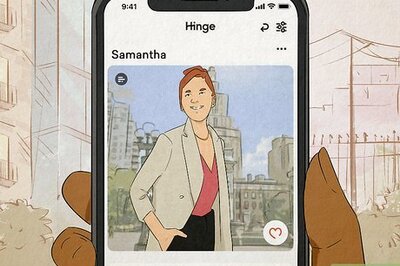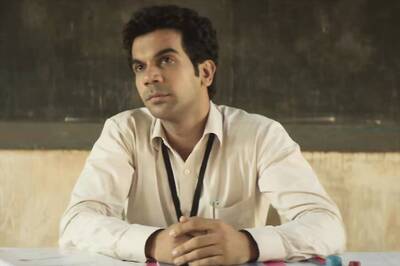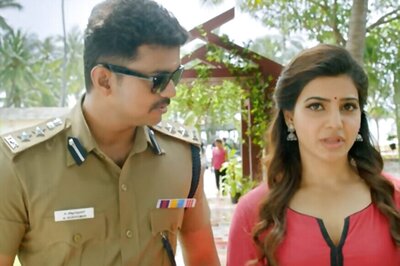
views
Jimmy Sheirgill has always touched hearts, and did that once again with Punjabi-language cinema’s latest hit, Daana Pani. Even in his powerful performances in Hindi films such as Maachis, Haasil, A Wednesday, Munna Bhai M.B.B.S, My Name is Khan, Tanu Weds Manu, Saheb Biwi Aur Gangster and the sequels of both these films, he has proved that he loves his craft and the characters he play, and doesn't hide behind the tag of a hero. He moves between Hindi and Punjabi cinema with a natural ease, which has given him a large and loyal fan base. In this freewheeling chat, Jimmy, who will be next seen in Phamous, Saheb Biwi aur Gangster 3 and Happy Phirr Bhag Jayegi, talks about everything from his latest film Daana Pani to his love for Punjabi cinema.
You must be extremely happy about Daana Pani’s success at the box office?
I was dying to see how people would react to this film. With that, I wanted to know that how would people respond to the cinema. For me Daana Pani is cinema. It is a film based in the 1960s, around the time we lost Indo-China war. I play a soldier in it, and the story revolves around the post-war times. As the title, Daana Paani depicts that daana paani khich ke leaunda… it is true that God has already written our daana pani. If he has written your daana pani at a particular place, it will take you there no matter how much you plan.
What kind of an experience was it to work with a young team – director Tarnvir Singh Jagpal and writer Jass Grewal?
I have known them for a long time. Jass and I have been discussing a lot of scripts earlier with different directors. One day while I was shooting for something in Delhi, they came to narrate the script, and after they narrated, I immediately agreed. Usually, during the narration, an actor’s scenes are described and how that filmmaker is going to portray him on screen. Those filmmakers have already made a profile of an actor, and by doing that they are only presenting a proposal to the actor. That is why they don’t come up with stories. I liked their approach of wanting to make cinema that would tell a story where I’m one of the essential characters just like others. Tarn and Jass didn’t portray every scene to be mine.
Then what was their approach behind this flick?
Tarn who earlier co-directed Rabb Da Radio had previously assisted Navaniat Singh, Dheeraj Rattan and couple of other directors. Tarn is one of the finest Punjabi film directors I have ever worked with – the way he shot and approaches the film, I wouldn’t be surprised if in a couple of years he is doing a big Bollywood movie. People make films, but this guy makes cinema. From the first day, I was impressed with his work but didn’t say anything, and we kept shooting. My staff and I used to discuss that what he is doing was unlike other Punjabi cinema directors. And on the last day, I sent him a text saying that he surprised me and I’m proud of him. He goes into such detailing. We need people like him if we want our cinema to grow. We need to get out of the rut of making proposals and money propositions.
You seem to be impressed with his craft.
His earlier film Rabb Da Radio was also great, but the way he shot Daana Pani is outstanding. The kind of shots he has taken, the sort of performances he has taken out from people, I was stunned by it. If this guy can do something for Punjabi cinema, we are in good hands. I’m sure about one thing; one of my best performances in a Punjabi film is going to come with this team. They shot the film the way I have always wanted films to be shot, and the way cinema actually needs to be shot. It shouldn’t be about placement of the camera and describing those two lines to the actor. These guys placed the cameras where you couldn’t even see it, and you are doing the whole thing the way it would have happened in real life. That is the beauty of it. Every director has his style of shooting, but I liked Tarn’s style because he is more like people I have earlier worked with – be it Shoojit, Tigmanshu Dhulia or Anand L. Rai. He has his own style, but is similar to this breed of directors. This kid is going to go places.
Do you closely follow other Punjabi filmmakers and see Punjabi films?
I try to watch almost all Punjabi films. Actor-singer Amrinder and writer-actor Amberdeep’s attempts have been amazing – from Angrej to Love Punjab and Lahoriye. For Amber to recently appear as an actor in Laung Lachi is a gutsy thing to do. I like how these guys are doing things. In fact, now our cinema is pretty fine – be it camera, sound or post-production. With Gippy Grewal trying Subedar Joginder Singh and Diljit Dosanjh trying Rangroot, content-wise also now people are getting into an experimental mode. Maybe in a couple of years Punjabi cinema will be high on content, as at least they have started thinking along the lines of content. Earlier only slapstick comedies were being made.
You dabble in Hindi and Punjabi films. What keeps bringing you back to Punjabi cinema?
I did my first Punjabi film Yaaran Naal Baharan because of director Manmohan Singh. He asked me if I would want to do a Punjabi movie as I was already doing Hindi films. I told him that I don’t even want to listen to the script because he was the cinematographer for my debut film Maachis and I had a very different relationship with him. And when I started shooting for it in Chandigarh and Patiala, I had great fun with all old memories coming back. I’ve been raised in Nabha and then studied at Punjabi University, Patiala. Then I decided to do one Punjabi film every year. And when Yaaran Naal Baharan released my father called up to say that tickets won’t be available until Monday. He said that a theater with a capacity of 1200 had 4000 people watching in it. They are not even watching the film but dancing. He said the theater guy is saying that they will start watching the movie from Monday onward. That is when I realized that Punjabi film industry could be a great industry. I took it seriously, and I started taking an interest in it. I would take out two-three months from my schedule and travel all across the world to promote Punjabi films. It was almost like going door to door to request them to watch our Punjabi movies. We have seen all those times. Then Munde UK De and Tere Mera Ki Rishta came out, which were musical hits. Finally, Mel Karade Rabba, which released in 2010, was a blockbuster.




















Comments
0 comment